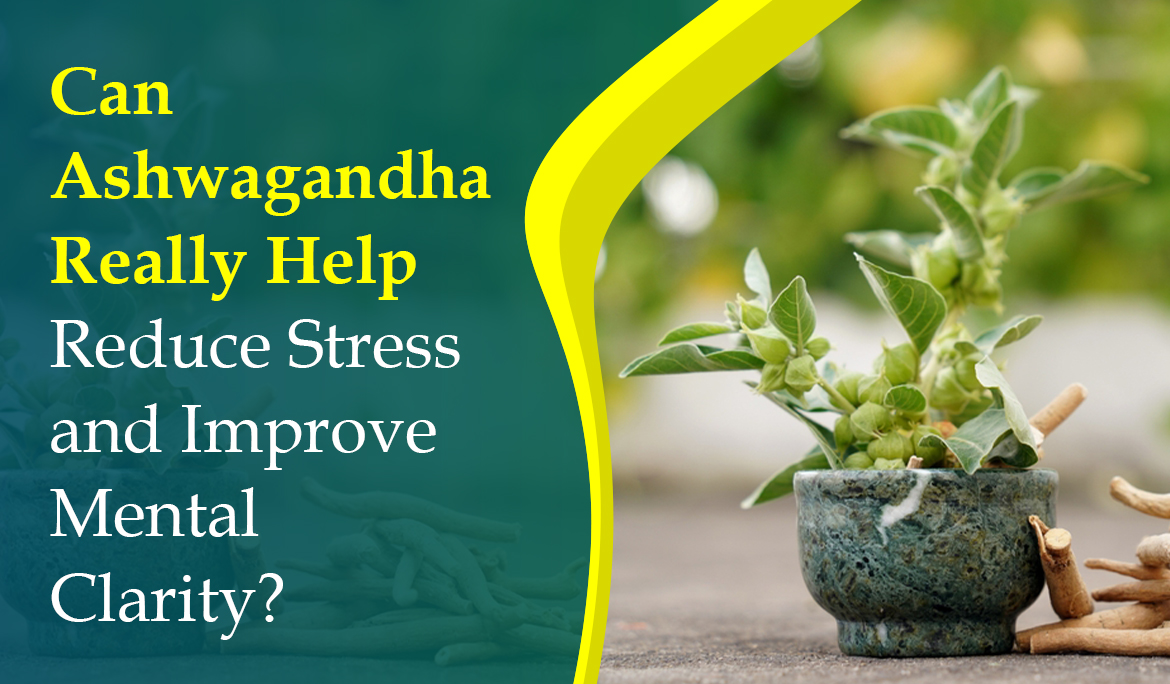In the chaos of the modern world – email chiming, phone buzzing, deadline looming, sleep shrinking – a sense of clarity, calm and control often seem more like a luxury than the norm. As more people reject synthetic quick fixes, the ancient roots of Ayurvedic wisdom are pulling a new generation toward India. Ashwagandha – an herb that has long been cherished – has a rebirth not just for soothing nerves but also for igniting vitality.
So, can this ordinary root really help ease your stress and sharpen your focus? Let’s explore.
The Science Behind Stress: Why We Feel So Frazzled
First, a little context. Stress is not only a state of mind; it’s a full-body phenomenon. When you’re anxious, your brain signals your adrenal glands to release cortisol, the “stress hormone.” In moderation, it’s helpful. But, chronic stress inundated your body with cortisol, throwing your sleep out of whack, suppressing your immunity and leaving your brain fogged.
And here Ashwagandha, a cool, experienced therapist – only 100% natural – comes to your rescue.
Ashwagandha: A Rooted Remedy
Ashwagandha (Withania somnifera) also known as “Indian Ginseng”, is an adaptogenic herb. That is, it supports the body in adapting to stress – not overreacting to it, but also not driving it in one direction.
The bioactive compounds within Ashwagandha are what makes it so special, known as withanolides and sitoindosides. These, in turn, help lower cortisol levels, balance neurotransmitters (including serotonin and dopamine) and improve sleep.
Indeed, trials have demonstrated that participants who ingested Ashwagandha root extract had significantly lower stress and anxiety scores compared with the placebo groups. Interestingly, some of the patients even claimed to experience enhanced cognition and improved quality of life.
Mental Clarity – The Surprise Bonus
You may have heard about the Ashwagandha powder benefits in the course of the conversation, but its effect on mental sharpness makes them all awestruck.
Stress has a way of fogging our brains, making it more difficult to concentrate, make decisions or even recall simple tasks. Ashwagandha has neuroprotective properties that help balance this out by alleviating oxidative stress in the brain and promoting neurogenesis (the birth of new brain cells).
No, it won’t transform you into a genius overnight. But, with practice, many users report a change – One of feeling less squirrelly, more focused, better able to meet the day in a clear-headed way.
Out of the Mind: Power, Endurance, and Development of the Muscle
While it’s known for inducing a sense of tranquility, Ashwagandha also hits hard as a physical restorer. It’s widely prescribed in Ayurveda, the traditional health system of India, as a medicine for strength and stamina, particularly for anyone recovering from long-term illness or who suffers from chronic fatigue.
It turns out that recent studies backs this up. One study published in the Journal of the International Society of Sports Nutrition found that men who took Ashwagandha extract and performed resistance training gained significantly more muscle strength and size than those who took a placebo. It is additionally associated with higher testosterone levels and better cardio respiratory resistance.
It’s within this perspective that Ashwagandha is considered one of the ayurvedic herbs for muscle growth if taken along with a good routine of bodybuilding and food.
Ashwagandha Powder Uses: How to Take Ashwagandha in Your Daily Life
In Ayurveda, Ashwagandha is traditionally consumed in powder form, mixed in milk or honey – great before bed to support sleep and relaxation. Today, it’s also sold in tablets, tinctures and even infused teas.
Want to maximize its benefits?
Morning: Take a small dose in warm water to enhance focus and handle anxiety before beginning the day.
Post-Workout: If taken post-training session, Ashwagandha might help with recovery and rebuilding of muscle.
Bedtime: Mixed with warm milk, it aids in sleep and nourishes the nervous system.
Just don’t forget – the key is consistency. As with most herbal supplements, it works best when used consistently over weeks, or months.
A Word of Caution
Even harmless herbs need to be used cautiously. Pregnant or nursing women should steer clear of Ashwagandha unless a doctor recommends it. And if you are taking medications for thyroid or blood pressure, or for autoimmune conditions, check with your doctor before adding it.
Also, sourcing matters. And, if you’re feeling like growing your own from ashwagandha plant seeds, bear in mind that you should get them from a reliable source. Wild or contaminated strains, in fact, may be worse than useless.
Final Thoughts: An Ordinary Herb, A Loyal Friend
Ashwagandha is no magic bullet. But in a world of instant everything, it is something timeless – like a path back to equilibrium. Whether you’re a deadline-juggling pro or you’re just after some calm amid the chaos, this ancient root is a must-have in your wellness arsenal.
In the bigger picture of integrative medicine, ashwagandha is a drop in the bucket. Institutions such as HiiMS Premier support integrated holistic mode of treatment and prefer to follow the root-cause treatment approach which may include Ayurvedic interventions like above. Their approach blends modern diagnostics with traditional treatment modalities such as yoga, naturopathy and herbal remedies and enables patients deal with not-so-serious illnesses without over dependence on chemically prepared drugs.
The best answers often do not come from the one genius but from the accumulated wisdom stored within the hearts and minds we respect.













